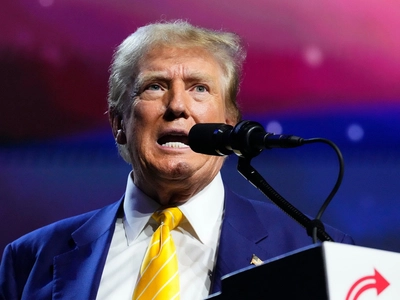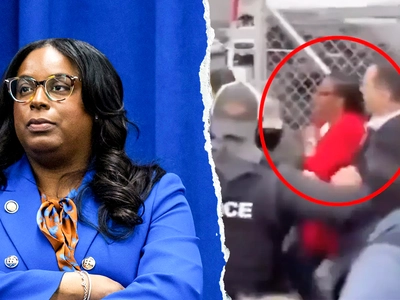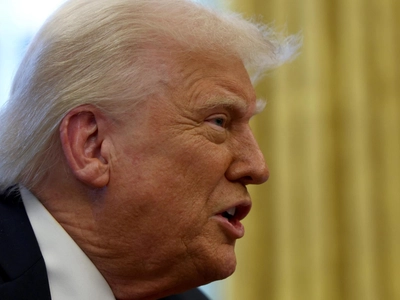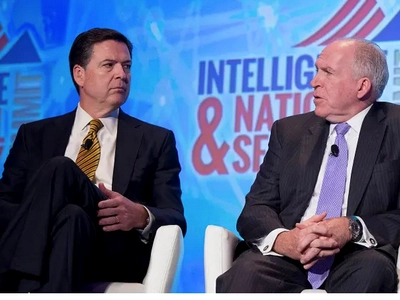DOJ’s Lawsuit Against NYC: Who’s Really Accountable for Sanctuary City Policies?
The heated battle between federal and local governments over immigration enforcement has reached a boiling point, and the question everyone's asking is whether our highest elected officials should face consequences for policies that have fundamentally transformed America's immigration landscape.
The Constitutional Crisis Nobody Wants to Talk About
When the Department of Justice takes legal action against major American cities, we're witnessing more than just political theater – we're seeing a constitutional crisis unfold in real time. The federal government's authority to enforce immigration law is being directly challenged by local jurisdictions that have decided they know better than federal agencies tasked with protecting our borders.
This isn't just about policy disagreements anymore. This is about whether elected officials can systematically undermine federal law enforcement while claiming they're acting in the public interest. When sanctuary policies actively prevent federal agents from doing their jobs, who bears the ultimate responsibility?
The Legal Maze of Executive Accountability
The Constitution grants Congress the power to regulate immigration, while executive authority stems from the duty to faithfully execute the laws. But what happens when that execution appears to prioritize political optics over legal obligations? Legal scholars are divided on the extent of presidential accountability when immigration policies result in demonstrable public safety concerns.
Federal courts have consistently upheld the principle that immigration enforcement is primarily a federal responsibility. Yet we've witnessed an unprecedented expansion of executive actions – over 600 immigration-related directives from one administration alone – that have fundamentally altered how America approaches border security and interior enforcement.
The legal question isn't whether presidents have broad discretionary powers in immigration matters – they do. The question is whether those powers can be exercised in ways that effectively nullify congressional intent and compromise public safety.
The Sanctuary City Showdown: Federal Law vs. Local Defiance
Sanctuary jurisdictions represent the most visible battleground in this constitutional clash. When cities and states enact laws specifically designed to obstruct federal immigration enforcement, they're not just exercising local autonomy – they're engaging in what many legal experts consider organized nullification of federal law.
The Department of Justice's lawsuits against sanctuary jurisdictions aren't merely political posturing. They represent a fundamental assertion of federal supremacy in areas where the Constitution clearly grants authority to the federal government. When local "Protect Our Courts" acts prevent federal agents from making arrests in courthouses, we're witnessing direct interference with federal law enforcement operations.
This creates a dangerous precedent: if local jurisdictions can simply decide which federal laws they'll honor, what's to stop them from ignoring other federal mandates they find politically inconvenient?
The Price of Political Theater
Critics argue that current immigration policies have prioritized messaging over results, creating a system where political considerations trump practical law enforcement needs. Border Patrol agents report being instructed to process and release individuals rather than detain them, while ICE officers describe being prevented from conducting routine enforcement operations.
When policy decisions consistently favor rapid processing and release over thorough vetting and detention, the question of accountability becomes unavoidable. If these policies result in public safety incidents that could have been prevented through traditional enforcement measures, shouldn't there be mechanisms to hold decision-makers responsible?
The Precedent Problem
Perhaps most concerning is the precedent being set for future administrations. If executive officials can dramatically reshape immigration enforcement through administrative actions while facing no meaningful accountability for the consequences, we're essentially creating an accountability-free zone in one of government's most critical functions.
The separation of powers framework depends on each branch of government exercising appropriate oversight over the others. When Congress fails to hold the executive branch accountable for immigration policies that appear to contradict legislative intent, the system breaks down.
Where Do We Draw the Line?
The fundamental question isn't whether any particular president should face personal consequences – it's whether our system of government can function when executive officials face no meaningful accountability for policies that directly impact public safety and national security.
When federal agencies are prevented from enforcing federal law by local jurisdictions, and when executive policies appear to prioritize political considerations over legal obligations, we need robust mechanisms to ensure accountability. Otherwise, we're left with a system where the most consequential decisions affecting American communities are made without meaningful oversight or responsibility.
The legal complexities are real, but they shouldn't obscure the basic principle that in a democratic republic, no official – regardless of position – should be above accountability for the consequences of their decisions. The question isn't whether accountability is warranted, but whether our current system is capable of providing it when it matters most.




